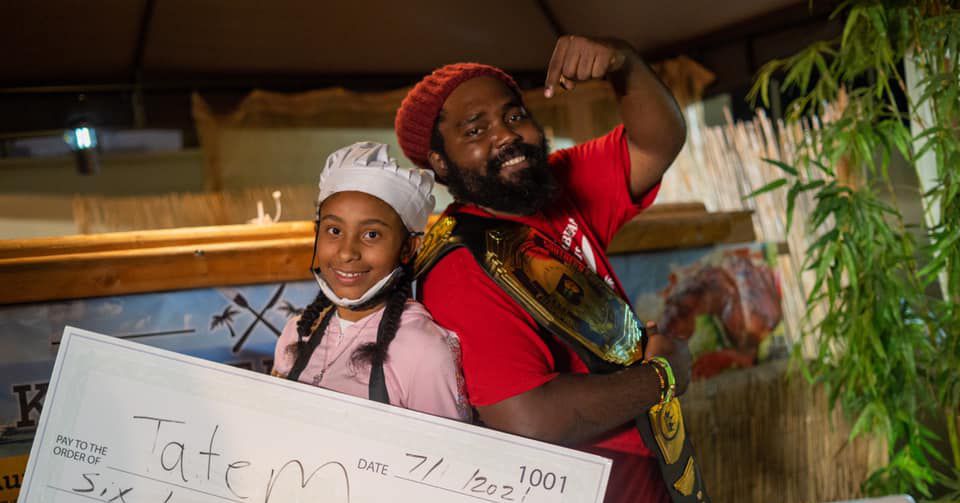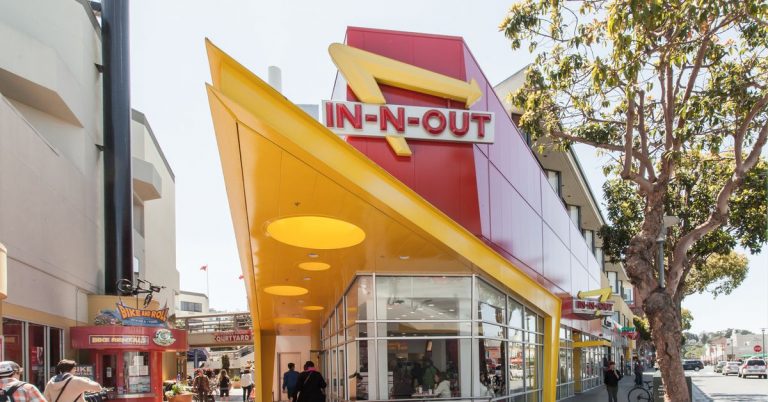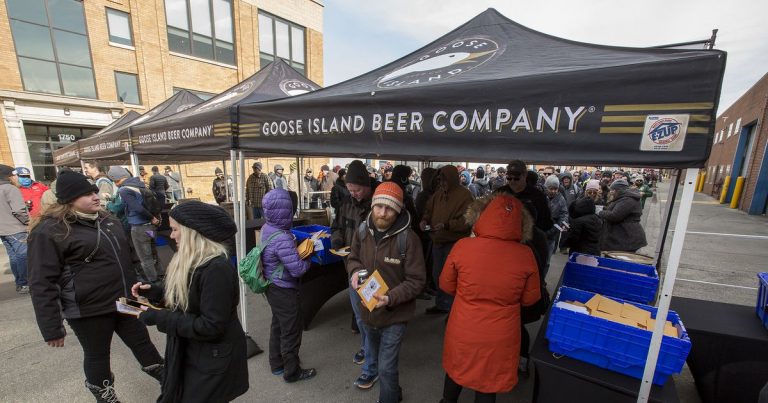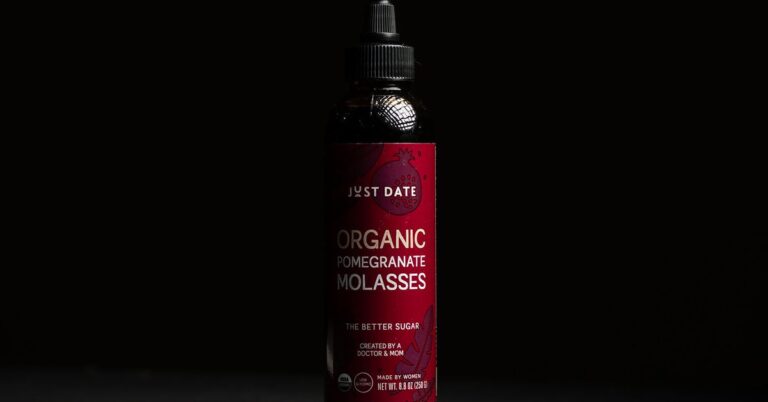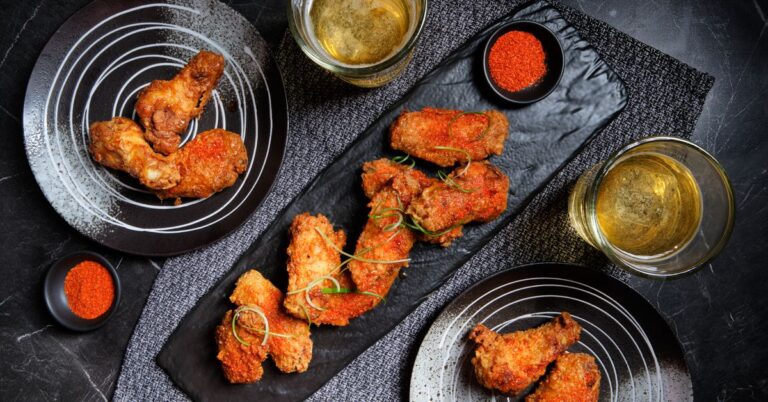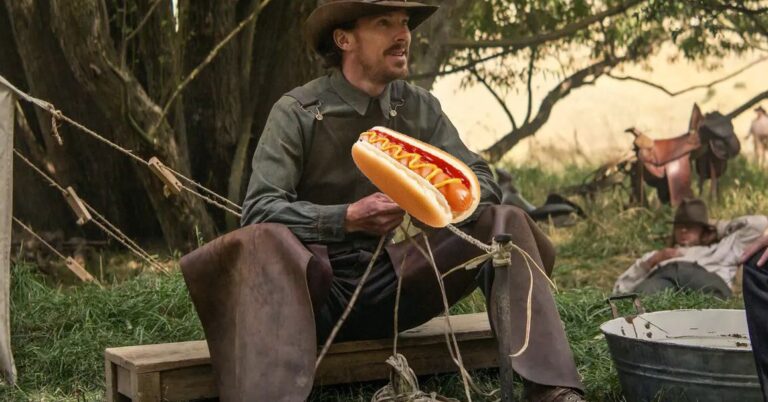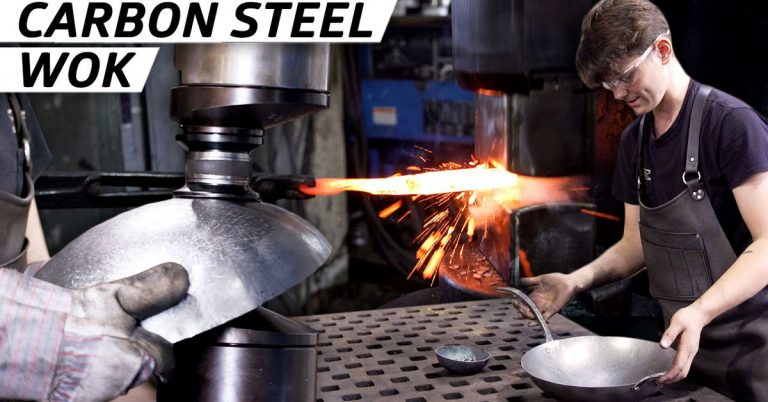The People Feeding the Southern Oregon Black Renaissance
When planning a Black-owned food truck competition in Medford, Oregon, the conditions need to be near perfect. The city, in the heart of Southern Oregon, is in Jackson County, where the Black population is just 1 percent; the area has a long history of institutional racism with still-rippling effects on the people of color who live there today. Beyond the racial climate, any event in the summer risks being smoked out by now-annual wildfires in the region. It was, in short, a gamble; everything needed to go right. But as BASE (Black Alliance & Social Empowerment) Southern Oregon, a Black nonprofit community organization based in Ashland, got ready to host its inaugural Food Truck Friday this summer, the Medford skies responded with a rainstorm that lasted up until the beginning of the event. The BASE organizers, and the food carts that had rolled in, braced themselves for a paltry turnout.
Instead, hundreds of community members gathered at the Backyard — a newly opened food cart pod and event space — to enjoy the competition between six of the Rogue Valley’s Black food truck owners. It was the first event of its kind — many of the carts that arrived only learned of each other that day, specializing in everything from Caribbean to barbecue to seafood. A live DJ spun in the background while families ordered saucy ribs and jerk chicken, sticking around for a Chopped-style food competition that included scholarships for local Black students.
In many ways, Food Truck Friday was the culmination of a summer during which BASE, which formed in early 2020, made its influence undeniable. Early in June, BASE partnered with Oregon Black Pioneers and a host of other Southern Oregon organizations for a weekend of events honoring the renaming of Ben Johnson Mountain, including a guided hike for BASE’s youth program, Afro Scouts. Later that month, they hosted Medford’s first Juneteenth festival, featuring music and many of the food trucks that would later participate in Food Truck Friday. For BASE, these sorts of events have become a way to strengthen and connect the Black community in Southern Oregon; Black chefs have become an integral part of that mission, fueling the events and developing relationships with the region at large. In turn, BASE has helped those food cart owners develop a bond that has kept them afloat during a uniquely perilous year.
“We’re in our own worlds out here,” says Al Daniels, owner of participating cart A&R BBQ. “Now we’ve got a little group, a little backing, a little familiarity.”
:no_upscale()/cdn.vox-cdn.com/uploads/chorus_asset/file/23085684/229147142_330084832115371_1123273254773061632_n.jpeg)
Southern Oregon’s Rogue Valley is an unlikely setting for a Black community renaissance. Jackson County has long been known as a hub for white supremacist activity and white supremacist-adjacent Patriot and Secessionist movements, many of which gained new life following the 2016 election of former president Donald Trump. Anti-Blackness is particularly pronounced in the Rogue Valley, an enclave entwined with the Rogue River that sits at the entry point to California. The Oregon Geographic Names Board only renamed Jacksonville’s Ben Johnson Mountain from ‘Negro Ben Mountain’ in 2020; before 1964 it had an even more derogatory name. Ashland teenager Aidan Ellison was killed by a white man over allegedly playing loud music in November 2020, a story eerily similar to that of Jordan Davis, whose murder was the subject of national news headlines and an HBO documentary. As a result, numerous Black residents deal with daily invisibility and isolation, and the quiet yet pervasive residue of Oregon’s exclusion laws creates a mammoth obstacle for Black businesses in the region.
That challenge — and the desire for a larger, tighter Black community — was a driving factor in the development of BASE Southern Oregon, according to founder Vance Beach. Beach, originally from Phoenix, moved to Ashland in 2007 to attend Southern Oregon University. He never intended to stay after graduation, but after meeting future wife and fellow BASE organizer Tiffany Beach, a lifelong Southern Oregon resident, he decided to make Ashland home. That included not just building a family, but an empowered Black community.
While visiting family in Phoenix, Vance Beach helped his sister launch BASE’s Arizona chapter in June 2020. The organization began with a focus on economic development, and one of their first and most popular events was Food Truck Fridays, which they now hold monthly. When he returned home, Beach and other Southern Oregon volunteers began brainstorming how they could bring the event to the Rogue Valley.
With a significantly smaller Black and Brown population than Phoenix, they knew they had to be creative. Whereas the Phoenix version was simply a gathering, BASE Southern Oregon decided to turn the event into a competition to heighten the entertainment factor. They collaborated with other nonprofits and organizations from the get-go, inviting judges that included representatives from nonprofit Rogue Food Unites and tourism platform What to Do in Southern Oregon. BASE also provided prizes that included $600, $400, and $200 scholarships for student sous-chefs, assigned to each food truck chef.
“It felt like we were on the Food Network,” says Daniels, a 20-year resident of the Rogue Valley. In A&R BBQ’s 12 years of business, Daniels says this is the first time he’s experienced this kind of acknowledgement of Black-owned businesses in the region.
According to BASE founder Vance Beach, building community is the essence of the organization, and food is central to that work. “We’re a communal people and food is one of the No. 1 things that brings people together,” he says. “There’s things called Chinese food, there’s things called Mexican food — all these different cultural foods. When you talk about Black food, though, you call it soul food. Food and our history behind the food has always been on my mind.”
With the success of the first Food Truck Friday, many in the community have asked BASE when they plan to hold the next one. Initially, Beach says the plan was to hold the event quarterly; however, COVID-19 and wildfire season have created major roadblocks for the organizations and chefs it works with. At one point in August, 28 percent of the state’s COVID hospitalizations were in Southern Oregon facilities, despite making up only around 13 percent of the population. Meanwhile, Jackson and neighboring counties spent weeks under air quality advisory due to wildfire smoke from Northern California and the Oregon Cascades, while hundreds of thousands of acres burned around the state.
For Black food truck owners in the Rogue Valley, the tumultuous environment of the region has caused significant challenges for them as business owners, from access to ingredients to physical health risks. Prior to opening his food truck, Freddie Dunbar, owner of Freddie Lee’s Seafood Smorgasbord and a regular vendor at BASE events, was working at Costco following a stint in the military. When he started his business in early 2020, he admits he was terrified.
“This was my first time running a business on my own. I was set up for failure but I couldn’t let that happen,” says Dunbar. “Every day I woke up, I didn’t know what was going to happen and I just took whatever came that day.” Dunbar says COVID-19 and the ongoing wildfires caused significant supply chain issues, and made it difficult for him to gauge how much food to buy any given week. “The shelves are empty,” says Dunbar. “I went from buying stuff that was pre-cut up to save me time to going back to buying heads of lettuce and chopping it up myself.”
While it’s been a challenge, he notes that, in many ways, COVID and the wildfires leveled the playing field for underdogs like himself. Without pricy rents and large staffing needs, food trucks stepped in to fill the void left by restaurant closures. Dunbar and Al Daniels agree that the circumstances have forced their businesses to adjust in a way that will pay dividends after the pandemic. “It has given us a masterclass,” says Daniels. “We’ve got tougher skin to deal with these natural disasters.”
Part of their survival strategy relied on solidarity among other Black business owners; for many of them, BASE helped build those relationships, helped them connect. At Food Truck Friday, Dunbar met many of his fellow Rogue Valley Black food truck owners for the first time; they have continued to stay in touch since, often collaborating and promoting each other’s community events. “We don’t have an NAACP chapter down here,” says Dunbar. “We don’t have a small business association for Black men. We don’t have anything, but we have BASE.”
Due to the uncertainty around the pandemic and the lingering effects of wildfire season, BASE can’t put a certain date on the calendar for the next Food Truck Friday. Nonetheless, the organizers and Black food truck owners aren’t worried about the anticipation dying down. With new customers, new event contracts, and, perhaps most importantly, a community group organized behind them, the Black food cart owners of Southern Oregon feel like they’re on more solid ground than they were even two years ago.
“At BASE, we shape our narrative. Somebody else does not,” says Beach. “Wherever you are geographically, you have to meet people where they are in order to truly build community.”
“We don’t have a food truck scene like Portland does, but there are people here doing the damn thing in the kitchen and it’s been awesome to get to know them ourselves and introduce them to other people,” says BASE volunteer and parent Jessica Freeman. “Food brings people together.”
• BASE Southern Oregon [Official]
